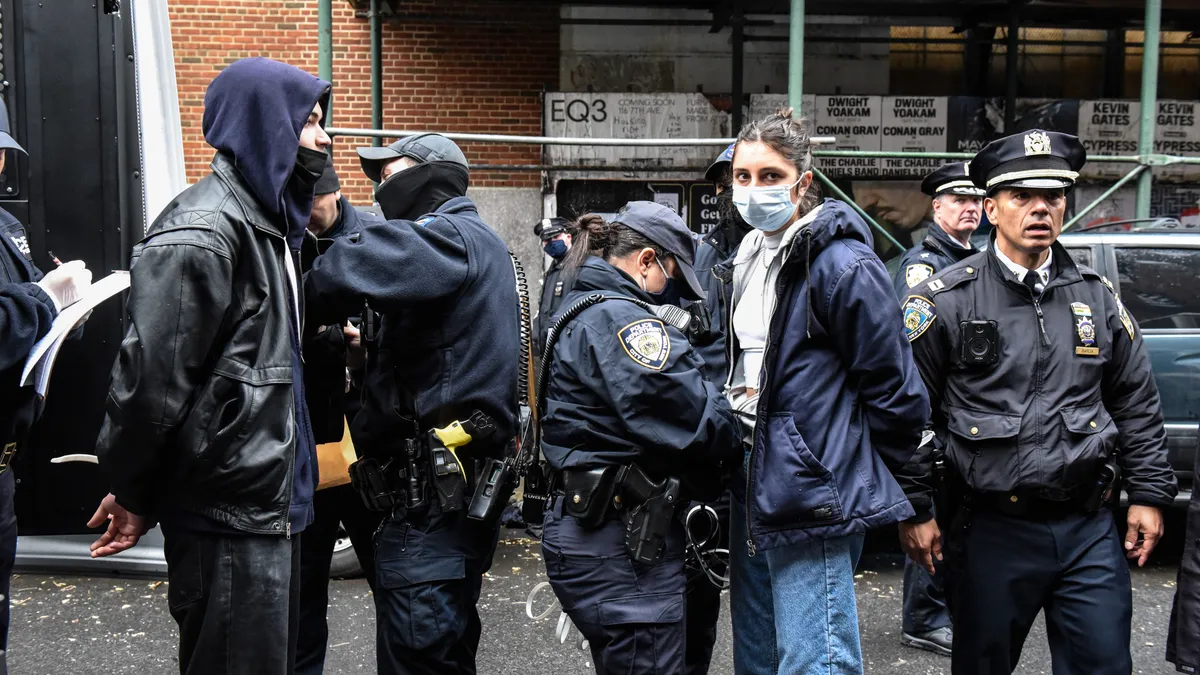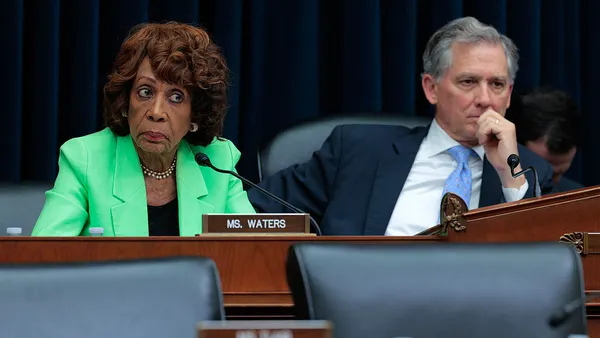Dive Brief:
- Police play a significant role in U.S. cities’ approach to homelessness, both in policymaking and in policy implementation, according to a brief released in May by Boston University’s Initiative on Cities and Cornell University.
- Police influence municipal policies on the unhoused, according to 78% of 126 mayors Boston University surveyed in 2021. Homelessness staffs are based in police departments of 22% of the mayors, and 76% of homeless outreach teams in the 100 largest U.S. cities formally involve the police, with a majority of teams enforcing criminal or civil infractions.
- The “heavy policy involvement” of police “means that even those policies whose aims are supportive of unhoused people may in practice be highly punitive,” the brief states. The authors call for local and federal efforts to “help shift the pendulum away from punitive approaches and towards evidence-based practices.”
Dive Insight:
As cities throughout the U.S. grapple with the rising number of people experiencing homelessness, many have asked police to enforce local laws against camping, sitting on sidewalks, and sleeping or eating in public, according to the brief. Pressure to use police to address homelessness often comes from residents and businesses that complain about the sight of unsheltered homelessness, it states.
To determine how extensively policing has been enmeshed in cities’ response to unsheltered homelessness, the researchers evaluated the homeless outreach policies of the 100 largest U.S. cities. They found that in many U.S. cities, outreach teams were within city police departments or had direct roles for police staffing and engagement within their procedures.
Local governments that police and criminalize homelessness are defying evidence-based housing policies and may actually promote cycles of homelessness, the brief says.
“There are either civil or criminal penalties associated with behaviors associated with homelessness,” said Charley Willison, assistant professor of public and ecosystem health at Cornell University and a report co-author. “A lot of research has shown that these penalties adversely affect people's access to social services, access to housing, and actually facilitate cycles of incarceration, which is directly contradictory to ending homelessness.”
Fines and fees can make it harder for a person to access employment and social services; criminal charges can affect a person’s eligibility for social services and housing programs; and people can lose documents such as birth certificates and IDs when encampments are cleared, preventing them from obtaining housing, employment and insurance.
The authors recommend that cities fund and use alternative outreach teams that do not involve the police but instead contain social workers, clinicians and mental health providers trained in psychiatric de-escalation strategies for unhoused people experiencing mental health or substance abuse disorder crises.
Cities should also critically examine their use of citizen complaint portals, which often prioritize the preferences of housed residents over the needs of unhoused residents, the brief states. Such complaint portals could be replaced by “help” mechanisms, in which citizens can call for help on behalf of themselves or others, inviting city responses that are rooted in social and medical services instead of enforcement strategies, it adds.
The authors also call for the federal government to increase incentives for city policies that increase affordable housing and provide social and medical services, rather than punitive policing.
Willison said that housing-first policies, such as Houston’s, are the best approach to addressing homelessness. Since turning to its housing-first model, Houston has seen its homelessness population decrease by roughly 63% over the last decade.
“In general, housing is the best way to end homelessness,” Willison said. Housing first is especially helpful for people who are facing more complex medical and social needs, she said. However, residents often oppose new shelters or housing, which leads cities to adopt enforcement-oriented policies, she added.
“We have a solution, it's pretty great. And unfortunately, what we see are cities pursuing punitive policies when they're unable to implement housing policies,” Willison said.













